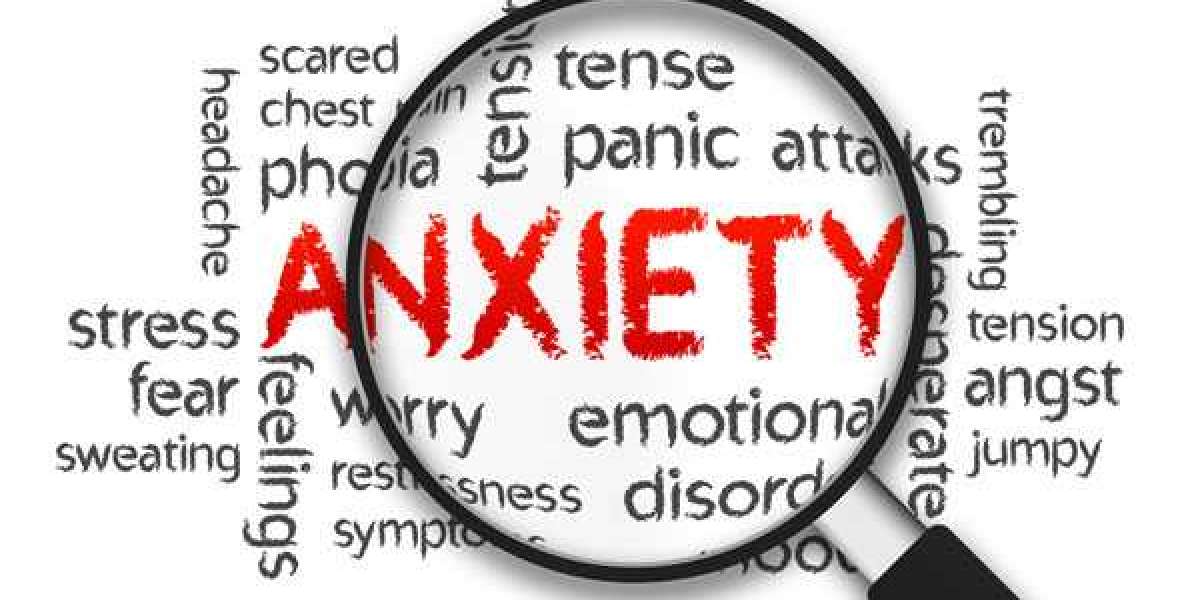Anxiety, a common mental health concern affecting millions worldwide, manifests in various forms and intensities. Understanding its causes, recognizing its symptoms, and adopting effective coping strategies are essential for managing anxiety and reclaiming a sense of calm and control. This comprehensive guide aims to shed light on these crucial aspects.
Identifying Causes of Anxiety
Genetics and Biology: Genetic predispositions and imbalances in brain chemistry can contribute to anxiety disorders. Family history plays a significant role in determining susceptibility.
Traumatic Experiences: Past traumas, such as abuse, accidents, or significant life changes, can trigger anxiety. Unresolved emotional issues may resurface, leading to persistent anxiety.
Stressful Environments: High-pressure work environments, academic demands, financial instability, or turbulent relationships can exacerbate anxiety levels over time.
Personality Factors: Certain personality traits, such as perfectionism, excessive worrying, or low self-esteem, can increase vulnerability to anxiety disorders.
Medical Conditions: Chronic illnesses, hormonal imbalances, or substance abuse can influence anxiety levels. Understanding the interplay between physical health and mental well-being is crucial.
Recognizing Symptoms of Anxiety
Physical Symptoms: These may include rapid heartbeat, sweating, trembling, muscle tension, dizziness, shortness of breath, and gastrointestinal discomfort.
Emotional Symptoms: Persistent feelings of fear, nervousness, restlessness, irritability, and a sense of impending doom are common emotional manifestations of anxiety.
Behavioral Changes: Avoidance of triggering situations, seeking reassurance excessively, difficulty concentrating, insomnia, and changes in appetite are typical behavioral signs of anxiety.
Cognitive Patterns: Intrusive thoughts, racing mind, overthinking, catastrophizing, and difficulty in decision-making are cognitive symptoms associated with anxiety.
Social Impacts: Anxiety can affect social interactions, leading to withdrawal from social activities, difficulty in forming relationships, and performance anxiety in social settings.
Coping Strategies for Anxiety
Seek Professional Help: Consulting a mental health professional, such as a therapist or psychiatrist, can provide valuable insights, diagnosis, and tailored treatment plans.
Practice Mindfulness and Relaxation Techniques: Mindfulness meditation, deep breathing exercises, progressive muscle relaxation, and yoga can help alleviate anxiety symptoms by promoting relaxation and present-moment awareness.
Maintain a Healthy Lifestyle: Regular exercise, balanced nutrition, adequate sleep, and avoiding excessive caffeine and alcohol intake contribute to overall well-being and can mitigate anxiety symptoms.
Establish Supportive Relationships: Surrounding yourself with understanding and supportive individuals who validate your experiences and offer encouragement can provide emotional resilience against anxiety.
Cognitive-Behavioral Techniques: Cognitive restructuring, exposure therapy, and systematic desensitization are evidence-based techniques that help individuals challenge irrational thoughts, confront fears gradually, and develop healthier coping mechanisms.
Set Realistic Goals and Prioritize Self-Care: Breaking tasks into manageable steps, setting realistic goals, and prioritizing self-care activities fosters a sense of accomplishment and reduces overwhelming feelings associated with anxiety.
Limit Exposure to Triggers: Identifying triggers and minimizing exposure to stressful stimuli, such as news or social media, can prevent anxiety escalation and promote emotional well-being.
In conclusion, navigating anxiety involves a multifaceted approach encompassing awareness, self-care, and professional support. By understanding the causes, recognizing symptoms, and implementing effective coping strategies, individuals can regain control over their lives and foster resilience in the face of anxiety challenges. Remember, seeking help is a sign of strength, and with the right support system, it is possible to manage anxiety and lead a fulfilling life.







